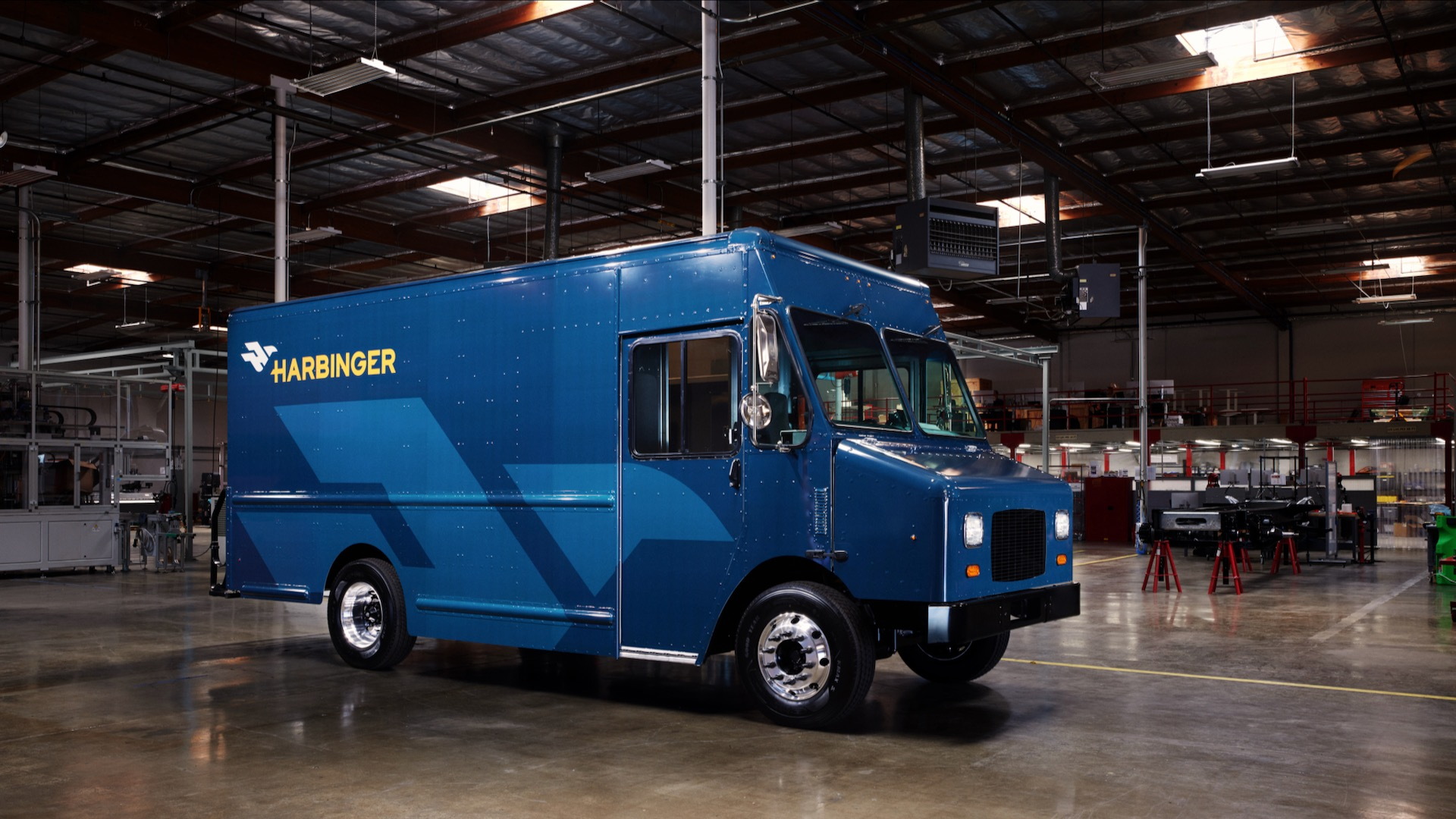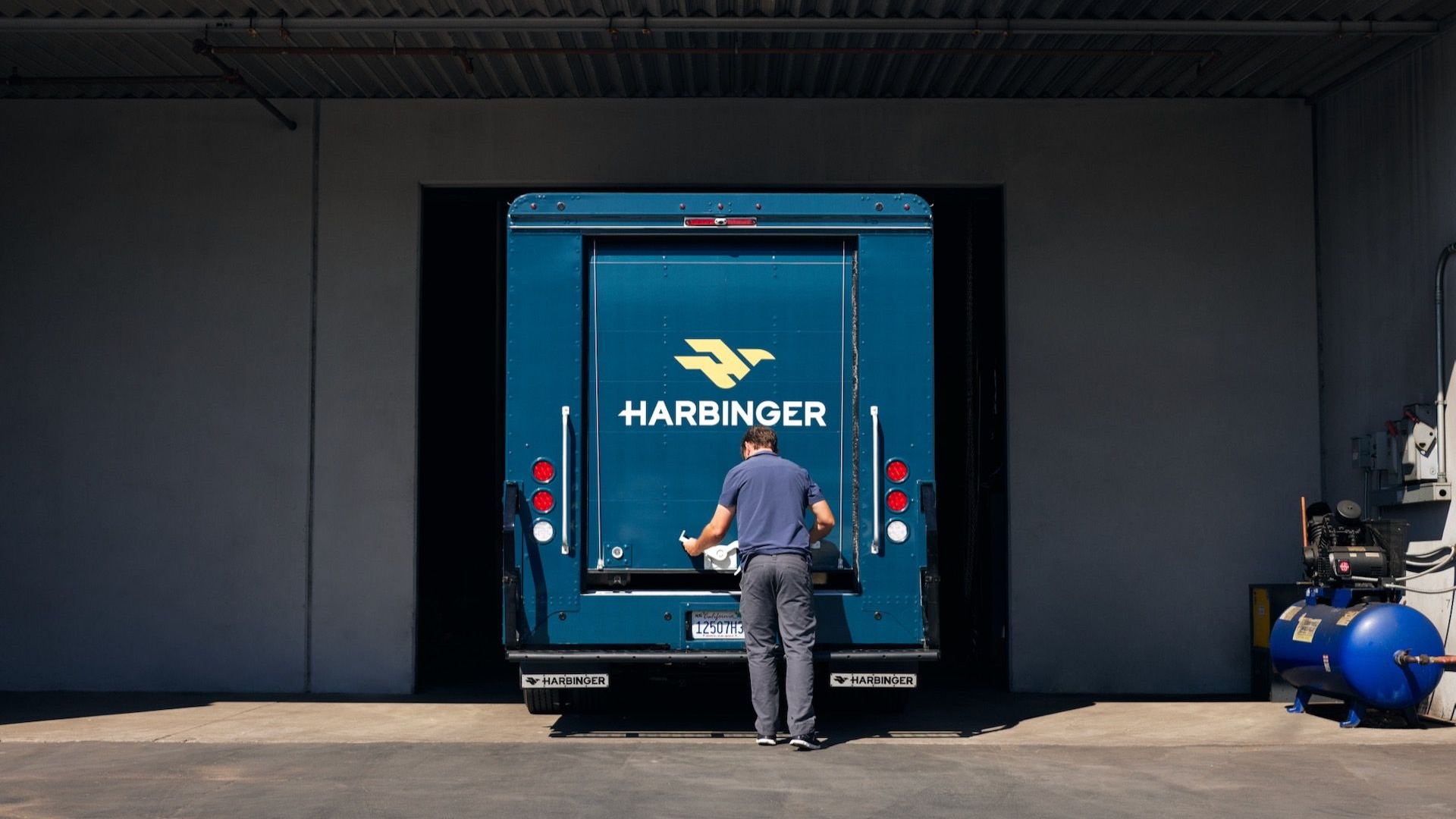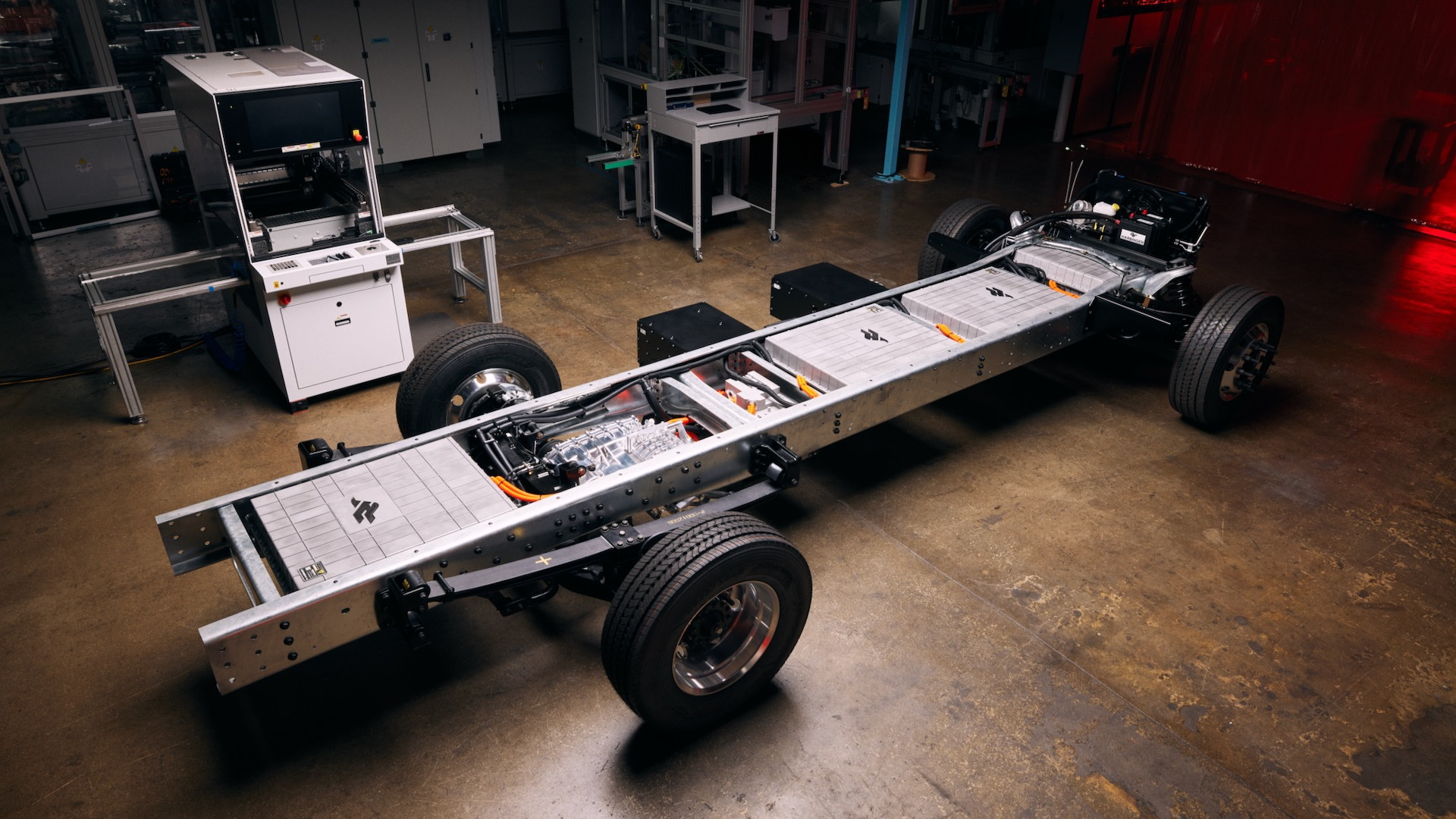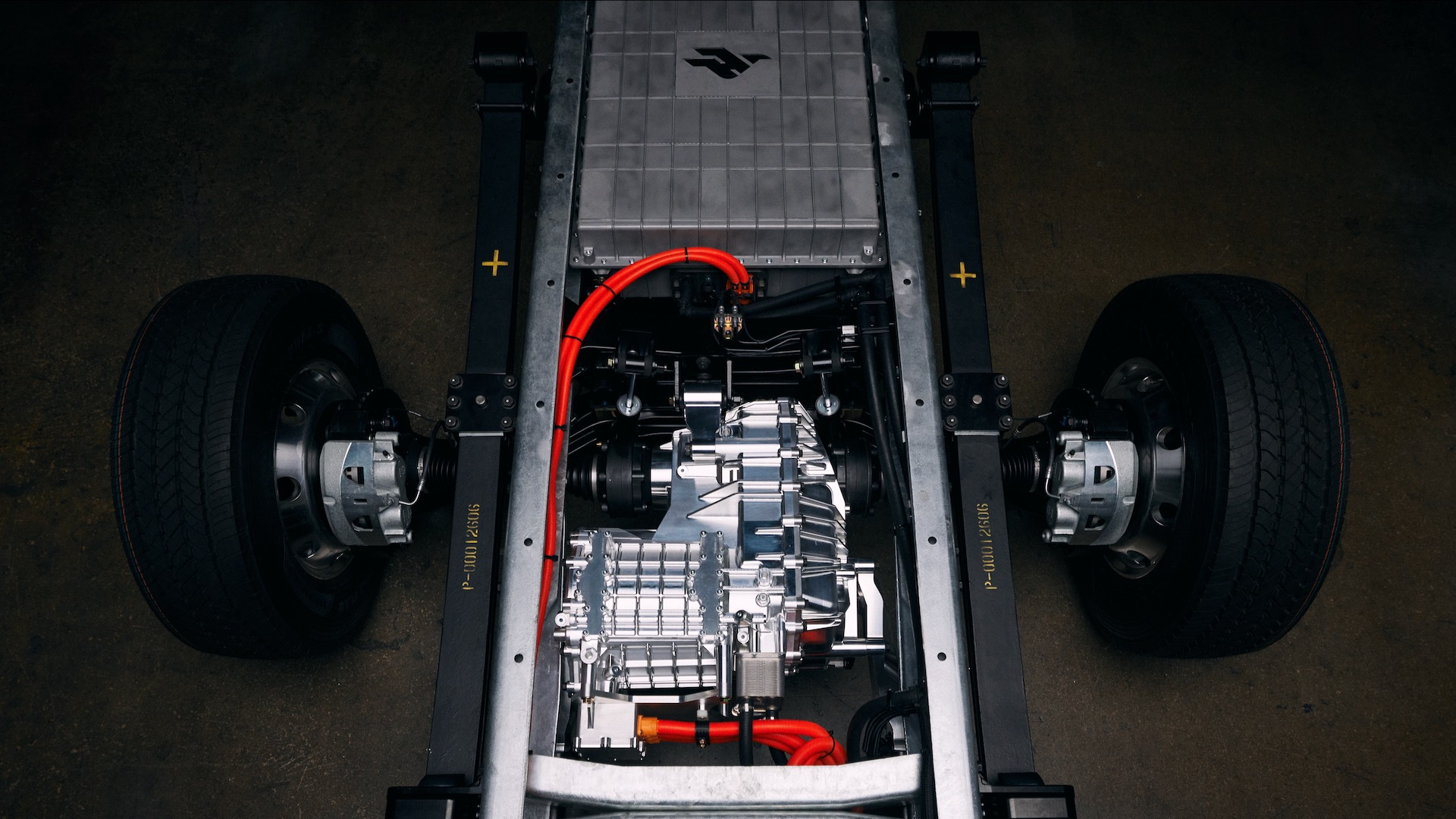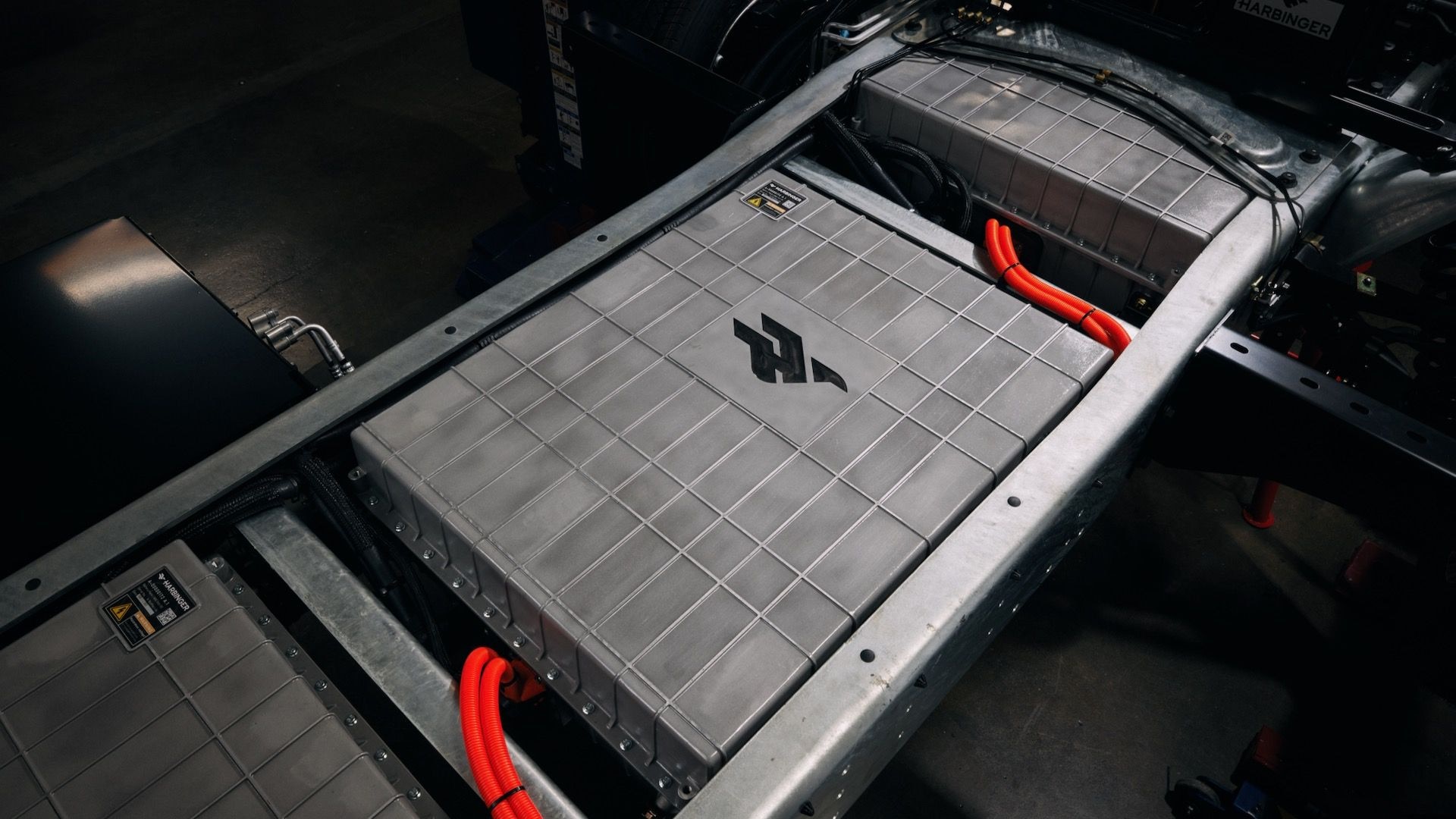There's a new commercial EV startup on the block. It's called Harbinger, and claims to have an EV platform for medium-duty trucks that will erase the up-front cost premium over current gasoline and diesel trucks.
The platform incorporates an "eAxle" that combines the motor, gearbox, and inverter in one unit, a modular battery pack, and streamlined chassis architecture, Harbinger said in a press release.
The liquid-cooled battery pack is scalable in 35-kilowatt-hour increments, and includes an 800-volt electrical architecture that allows for "one-hour DC fast-charging capability," according to Harbinger. The startup claims the powertrain is designed for a 20-year, 450,000-mile operating lifespan.
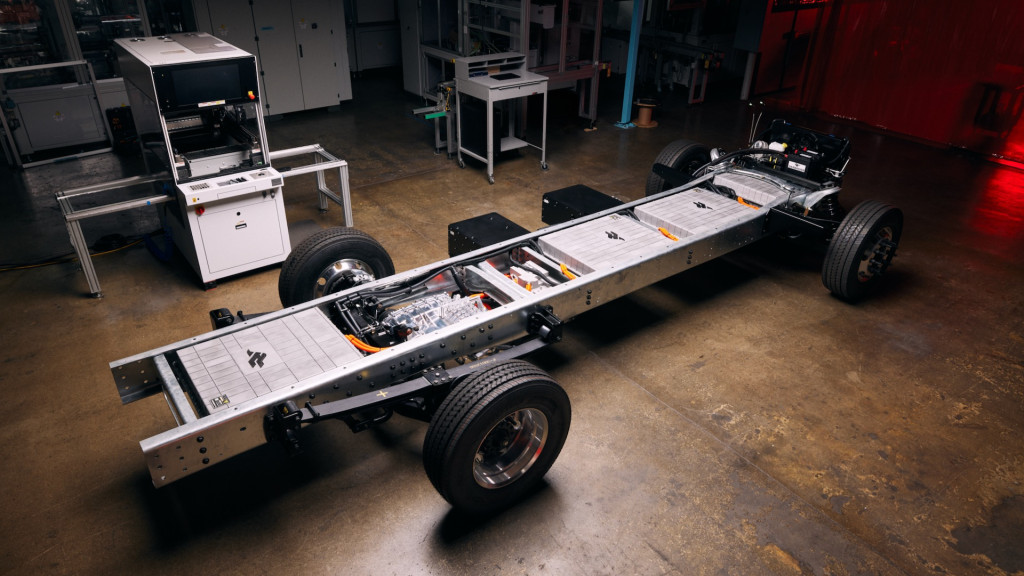
Harbinger EV chassis
Harbinger said it will pursue "supplier agnostic" battery sourcing, while the pack has a cast/structural design that reminds us of Canoo's platform—and Tesla, of course. Another company aiming to transform the format for commercial EVs is REE, which also plans to sell a basic platform that can be fitted with different bodies depending on customer needs.
The chassis incorporates steer-by-wire and brake-by-wire systems, as well as independent front suspension that reduces the front overhang, improving driver visibility and the vehicle's maneuverability, the startup claims. These components also contribute to a fairly low floor height of 28 inches.
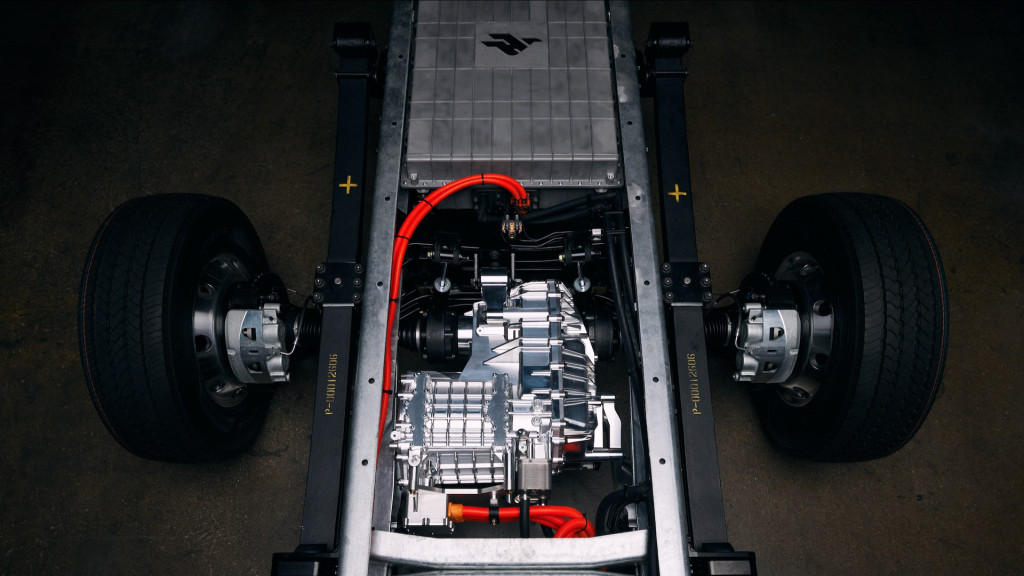
Harbinger EV chassis
Harbinger said it plans to sell a chassis cab and stripped chassis, the latter designed for popular medium-duty truck body styles, such as walk-in vans, box trucks, and RVs.
The startup will show its EV platform at the upcoming 2022 Detroit Auto Show, followed by initial deliveries to customers in 2023. Full-volume production is planned for 2024.
Timing is essential, and the electric commercial truck market is about to heat up. It will soon be getting some motivation from Washington D.C., in the form of a credit of up to $40,000 as part of the Inflation Reduction Act (IRA). And 17 states are standing by a plan to electrify 30% of trucks and buses by 2030.
